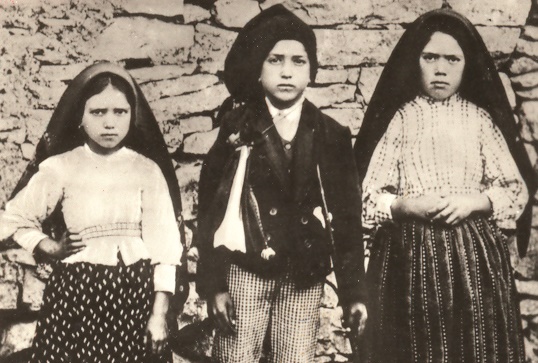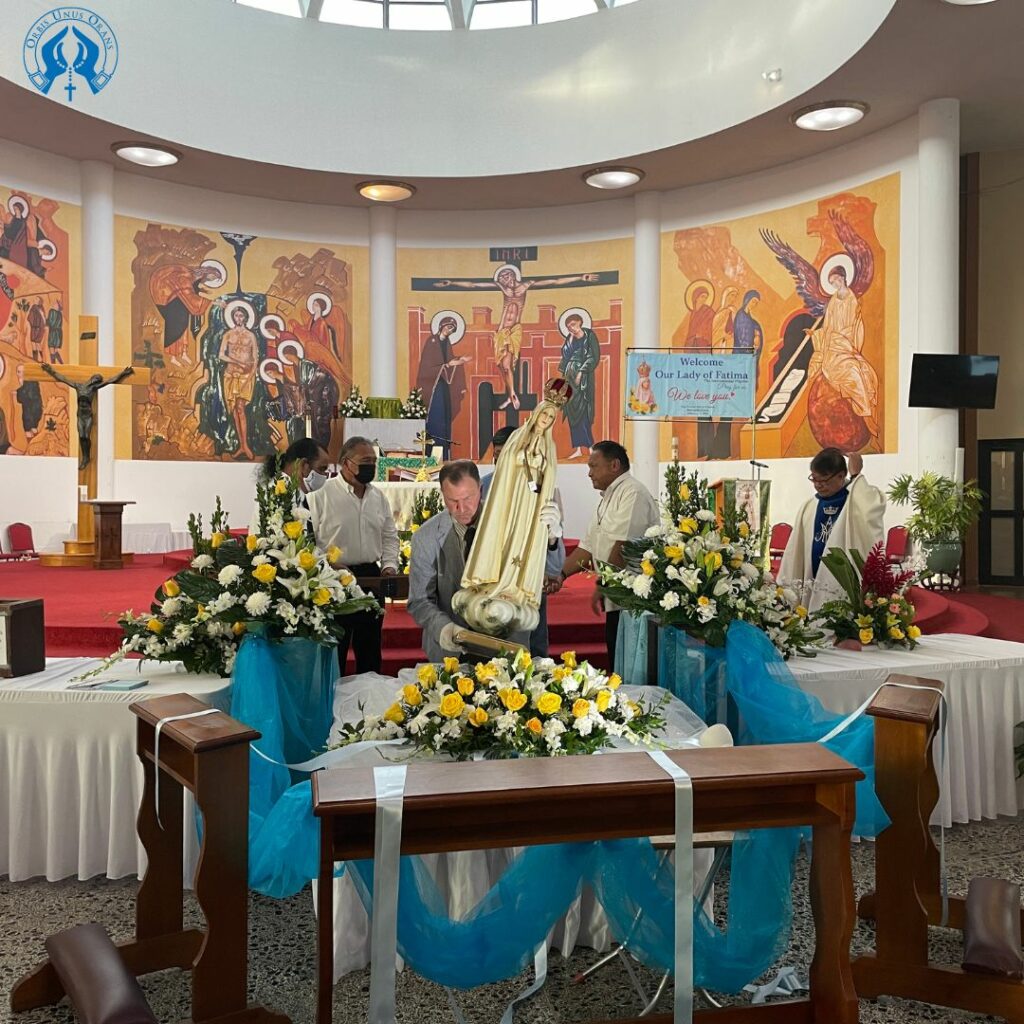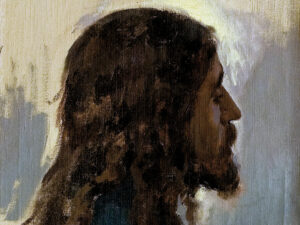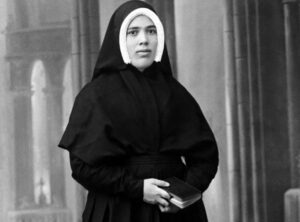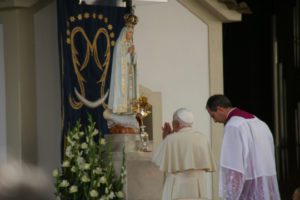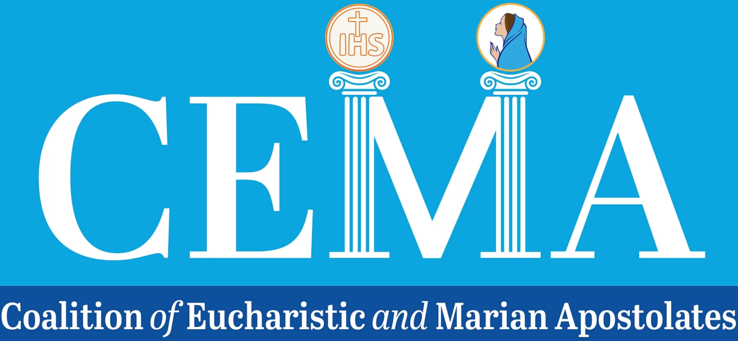by Elizabeth Turello –
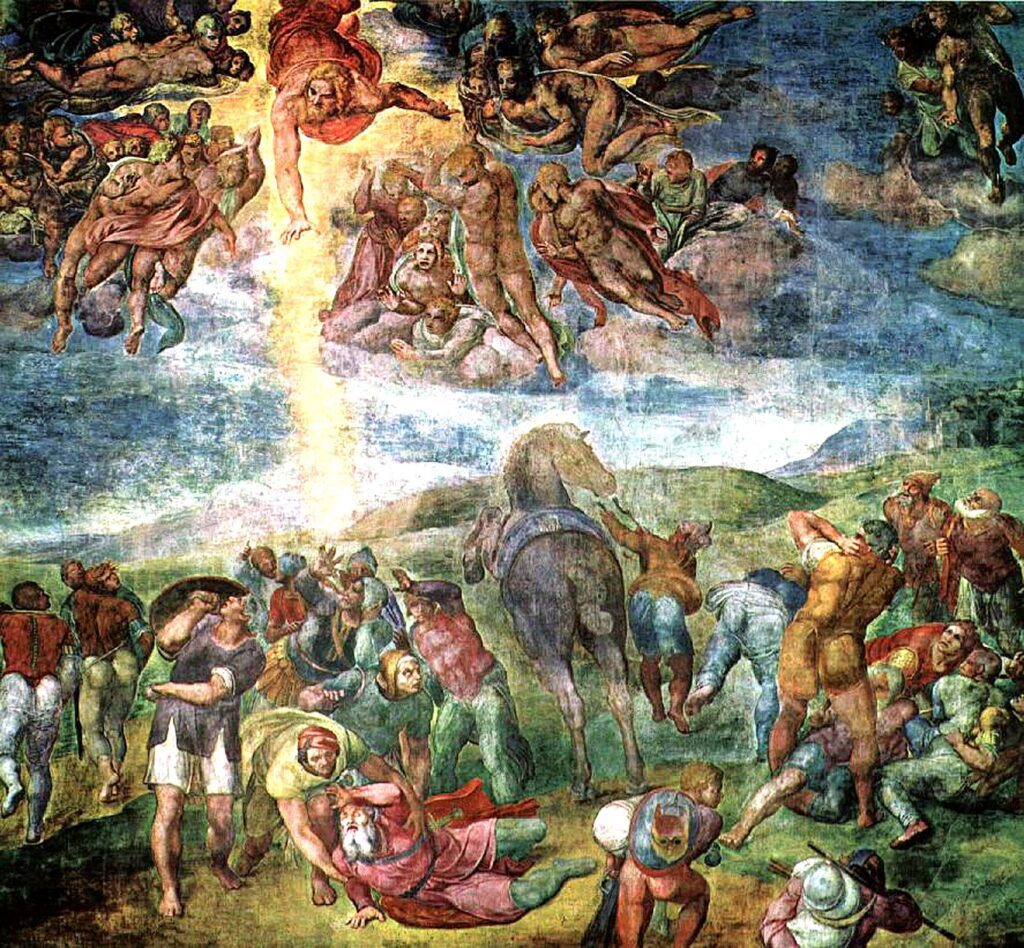

It’s easy to be silent in the face of persecution. Sometimes, it’s even easier to become the persecutor. It goes against our faith and the deepest part of our soul, but it satisfies the humanistic need to feel attached to this world; to “belong” instead of carrying the daily cross of facing adversity. So, we do it again and again until soon, it becomes second nature – justifiable, because to admit we are sinful is to accept that we need God’s mercy. Only evil can twist our minds to think we don’t need God’s forgiveness.
Have you ever stayed quiet as someone in the room made a comment about your faith? What about gossiping behind a friend’s back, whatever the reason? Or maybe you were quick to judge another on something they can’t control, then treated them differently for it?
I have. And believe it or not, it makes me like the great apostle St. Paul.
Before he was an apostle, St. Paul (known then as Saul), condemned followers of Christ; we learn in Acts 7 he attended the stoning of the protomartyr, St. Stephen. Two chapters later, we’re told his persecuting continued: “Now Saul, still breathing murderous threats against the disciples of the Lord, went to the high priest and asked him for letters to the synagogues in Damascus, that, if he should find any men or women who belonged to the Way, he might bring them back to Jerusalem in chains” (Acts 9:1-2).
This version of the saint, while difficult to read about, is necessary to comprehend the meaning of today’s feast, the Conversion of St. Paul. Even after witnessing the beautiful testimony of St. Stephen – of the truth – he continued in his persecution of Christians.
Maybe this makes us feel outraged or sorrowful, perhaps even quick to judge these sinful actions. But the Bible gives us one perfect example to follow: Christ. The flaws of the saints and others are highlighted to teach us about God’s ultimate mercy.
In the immediate line following his request, Saul is greeted by a vision of the Lord on the path to Damascus: “I am Jesus, whom you are persecuting” (Acts 9:5). When it is over, Saul is stricken blind. He remains this way for three prayer-filled days until Ananias, commanded by the Lord, heals him. From then on, Saul praises the Lord, spreading His message. Once he is referred to as Paul in Acts 13:9, it remains the way he is addressed.
What can we learn from this story? Like Saul, we are often stricken blind to the truth by the world and its values. Sometimes we might think we’re doing the right thing (like Saul who thought he was protecting Judaism from heresy) only to discover we are wrong. This does not excuse us, though; there are signs of the truth along the way as with the example of St. Stephen’s proclamation. How can we begin to heal our souls then?
First, it is important to acknowledge our shortcomings and sinful ways. Be honest with yourself – have you ever been the persecutor like Saul? You don’t have to condemn and kill Catholics to be a persecutor. When we sin, we are persecuting Christ, are we not?
In addition to acknowledging our sins, it’s vital to recognize that we allowed them to control us, even when faced directly with the truth, the same as Saul. Without this step, we refuse to forgive ourselves, which means there is no accepting God’s vast forgiveness; this goes against the root of Catholicism.
Finally, we can move on and grow. While we can’t undo past mistakes, we can assure that once redeemed through God’s mercy, we better ourselves. Saul couldn’t turn back time and save the lives of those he condemned, but once forgiven, he became St. Paul, the great apostle, converting and saving souls. It’s often mistaken that Saul received the name Paul from the Lord, but this is untrue as Catholic Answers points out: “The Hebrew name given him by his parents was Saul, but, because his father was a Roman citizen (and therefore Saul inherited Roman citizenship), Saul also had the Latin name Paul (Acts 16:37, 22:25-28), the custom of dual names being common in those days.” By going by Paul after his conversion, the saint demonstrates his miraculous change and abandonment of past mistakes.
While we don’t need to change our names to move forward, the Conversion of St. Paul is a powerful Biblical passage to learn from. St. Paul, patron of evangelists, pray for us!


Elizabeth Turello is the Communications Associate for the World Apostolate of Fatima USA/Blue Army Shrine.


